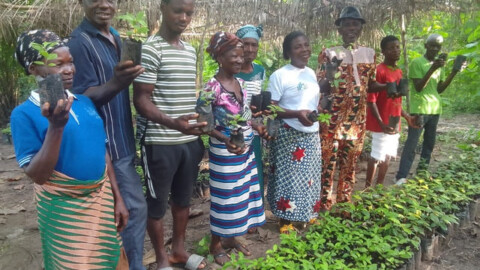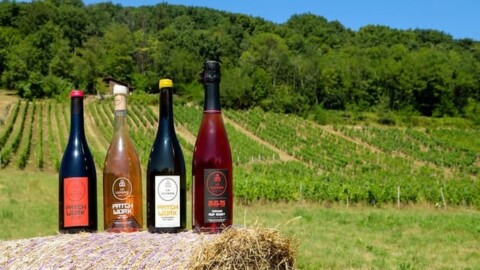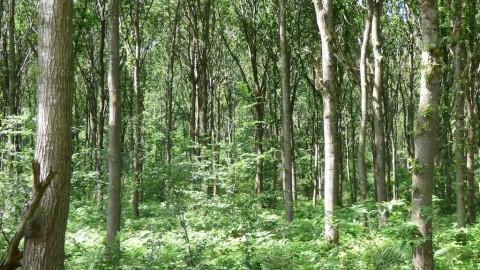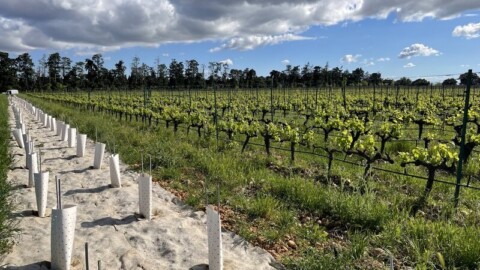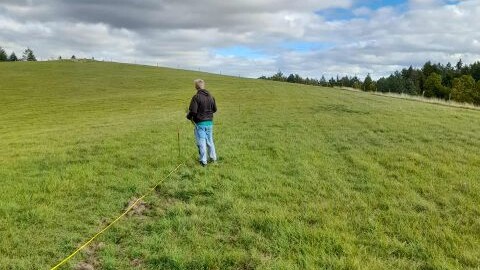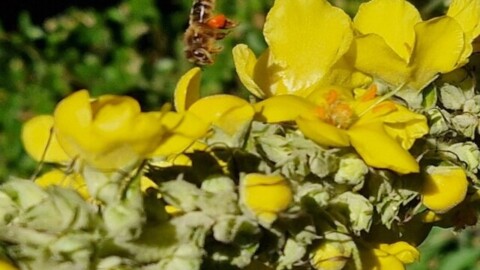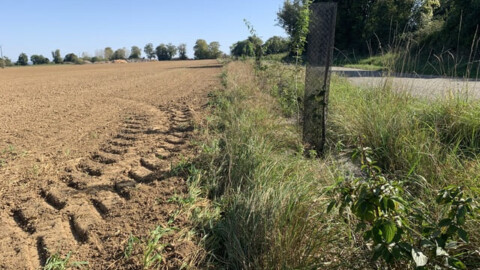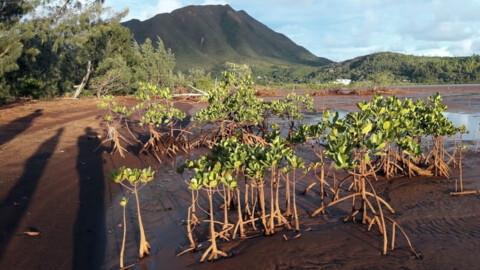
Background & challenges
An organic farm in eastern Ariège (southwestern France), Plajoulet specialises in ancient grains, bread, and honey. In recent years, the landscape of molassic hills lying between the Pyrenees and Lauragais plain, has been experiencing major changes to its climate: prolonged summer droughts, increasingly frequent Autan winds, and sea airflows are drying the soil, plus violent storm rainfalls are accelerating erosion and fertility loss.In this context, ancient wheat varieties – taller and more sensitive to wind than their modern counterparts – as well as beekeeping activities, are under severe threat. Pollinators are also suffering from the uniform agricultural landscape (wheat/sunflower monoculture) and a lack of habitats and diverse food sources for most of the year.
The agroforestry project aims to tackle to these challenges by:
- Planting fruit and melliferous trees (almond, hazelnut, strawberry tree, cherry, etc), plus forest species, to structure the landscape, limit erosion, and create favourable microclimates.
- Establishing melliferous strips of lavandin, rosemary and blackberries to feed pollinators and support local biodiversity over nearly ten months of the year.
- Improving soil quality and resilience: the trees will increase the amount of organic matter, support soil microfauna, and reduce the need for activities involving heavy machinery, thus lowering fuel consumption and CO₂ emissions.
- Supporting local and sustainable production: locally grown almonds and hazelnuts will replace imported nuts used to make speciality breads, and honey production will benefit from extended flowering periods, improving both the quality and quantity.
Beyond its environmental benefits, this project is an inspiring model for more resilient agriculture, combining production, biodiversity, and climate adaptation, while enhancing local resources and reducing dependency on imports and inputs.
Project type

Agroforestry
Beneficiaries

Michel, farmer and beekeeper
Number of trees

6,190 lasting trees planted
Species planted

Hazelnut, wild service tree, strawberry tree, chestnut, Acer spp., mulberry, sorb, almond, pomegranate, apricot, peach, pear, apple, plum, cherry, olive tree, black locust, goat willow, large-leaved lime
Partner

Ariège Chamber of Agriculture
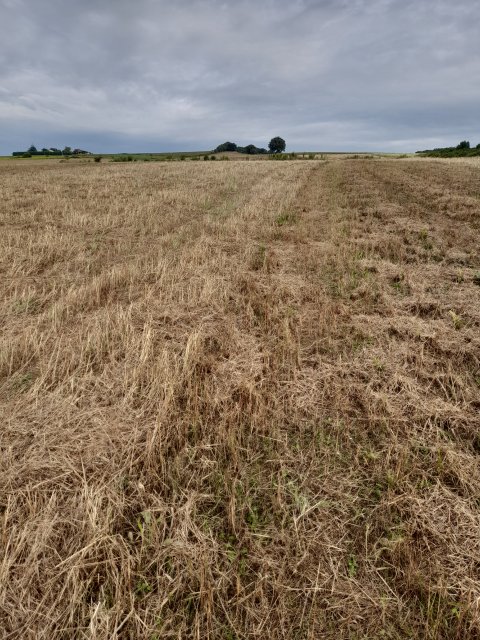
Works timeline
- Every autumn and winter 2025–2028: soil preparation and planting
- Spring – summer over the seven-year project period: plantation monitoring (vegetation control and monthly watering in the case of drought)
- Every September over the seven years: mortality survey and replacement of young trees if necessary.
Regular monitoring will continue for three years after planting (mortality monitoring, formative pruning, inter-row management, and tree growth follow-up).
Planting partner
BUDGET
The total amount to be raised is €80,470, i.e. €13 per lasting tree planted , broken down as follows:
- 90% allocated to the planting project:
- Fruit, field and forest trees, shrubs: €3.25
- Tree guards: €0.69
- Stakes: €1.03
- Mulch: €0.46
- Tree mycorrhization: €0.09
- Technical support from Ariège Chamber of Agriculture: €5.03
- A Tree for You fundraising, monitoring, and communication costs (8.84%): €1.15
- 10% (€1.30) for A Tree for You’s overheads
Michel’s soil preparation, planting, and maintenance work totals €19,749.66, i.e. €6.51 per tree, broken down as follows:
- Soil work: €4.01
- Planting-related activities: €2.50


